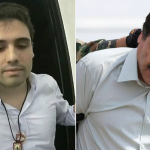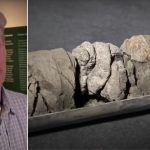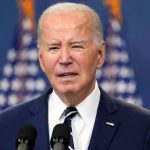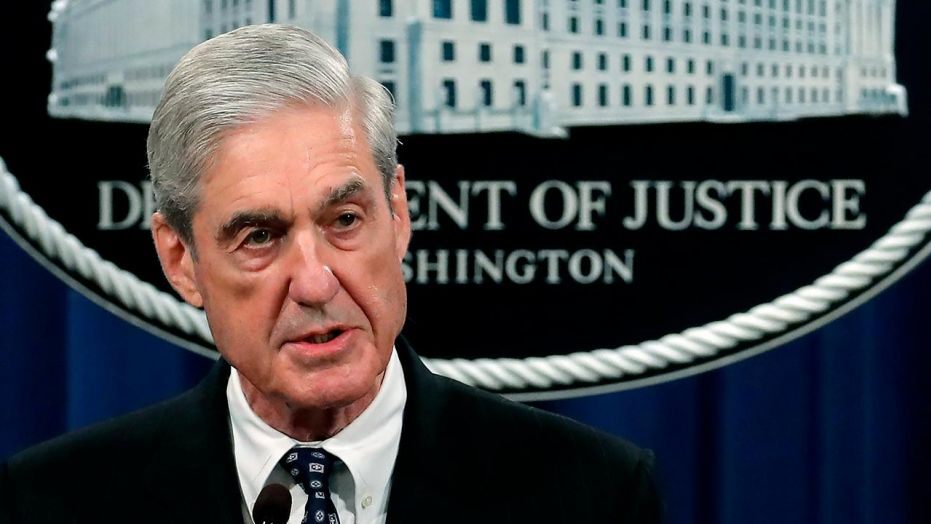President Trump argued Monday that Robert Mueller should not be given the chance to testify before Congress later this week, warning that the former special counsel’s highly anticipated hearing appearance could be “bad for him” and for Democrats in the end.
“Highly conflicted Robert Mueller should not be given another bite at the apple. In the end it will be bad for him and the phony Democrats in Congress who have done nothing but waste time on this ridiculous Witch Hunt,” Trump tweeted. “Result of the Mueller Report, NO COLLUSION, NO OBSTRUCTION!”
Mueller is slated to appear before both the House Judiciary Committee and the House Intelligence Committee on Wednesday, for back-to-back public hearings. Later, lawmakers are expected to interview Mueller’s staff behind closed doors, but it is unclear whether Mueller himself will continue to answer questions in a private setting.
Mueller only spoke in public about his investigation once. In May, Mueller hosted a press conference (he did not take any reporter questions) outlining his findings, noting there “was not sufficient evidence to charge a conspiracy” over whether members of the Trump campaign coordinated with the Russian government during the 2016 presidential election. His language on the question of whether the president obstructed justice, though, left the issue open—a move that Democrats took as a signal to ramp up their investigations.
Fox News learned last week that Democrats on the Judiciary and Intelligence Committees are expected to focus on five areas in Mueller’s report having to do with his inquiry on “obstruction,” rather than on accusations of the Trump campaign colluding with the Russians, in an attempt to expose potential wrongdoing by the president.
Among the topics they are expected to focus on: Trump’s reported call to then-White House Counsel Don McGahn to fire Mueller; the claim the president ordered McGahn to deny he told him to try to get rid of Mueller; allegations the president told former campaign manager Corey Lewandowski to instruct then-Attorney General Jeff Sessions to curb the probe; the dangling of pardons to former campaign manager Paul Manafort; and allegations of witness tampering, including with Manafort.
“The [Mueller] report presents very substantial evidence that the president is guilty of high crimes and misdemeanors and we have to present—or let Mueller present those facts to the American people and then see where we go from there,” House Judiciary Committee Chairman Jerrold Nadler said on “Fox News Sunday.” “Because the administration must be held accountable and no president can be above the law.”
Mueller, though, has signaled his reluctance to testify before Congress.
“There has been a discussion about an appearance before Congress. Any testimony from this office would not go beyond our report. It contains our findings and analysis, and the reasons for the decisions we made. We chose those words carefully and the work speaks for itself,” Mueller said in May.
Still, Nadler, D-N.Y., and House Intelligence Committee Chairman Adam Schiff, D-Calif., subpoenaed the former special counsel to testify.
Trump on Monday, though, proposed certain questions be asked of Mueller, including how the Russia investigation began.
“But the questions should be asked, why were all of Clinton’s people given immunity, and why were the text messages of Peter S[Strzok] and his lover, Lisa Page, deleted and destroyed right after they left Mueller, and after we requested them (this is Illegal)?” Trump tweeted Monday.
The president was referring to the FBI’s deal to give immunity to those implicated in the bureau’s investigation of Hillary Clinton’s use of a private email server and handling of classified information while secretary of state during the Obama administration.
The president was also referring to former FBI special agent Peter Strzok and former FBI counsel Lisa Page—both of whom served in Mueller’s office during the early stages of the Russia investigation. Page left Mueller’s office during the summer of 2017 after a short detail and returned to the FBI. Strzok, though, was removed from Mueller’s team and re-assigned to the bureau’s human resources division after the Justice Department inspector general discovered a series of anti-Trump and politically charged text messages exchanged by Strzok and Page. Page resigned from her post in May 2018, and Strzok was fired from the bureau in August 2018.
The president and congressional Republicans have been asking questions about Strzok and Page, and how the Russia investigation began, for months. Senate Judiciary Committee Chairman Lindsay Graham, R-S.C., vowed in March to probe the origins of the investigation, and Attorney General Bill Barr appointed U.S. attorney from Connecticut John Durham to examine the origins of the probe, including all intelligence collection activities related to the Trump campaign during the 2016 presidential election, alleged misconduct and alleged improper government surveillance.
But Nadler said he isn’t worried about Republicans asking questions of Mueller about the origins of the probe, and claimed they would only be wasting their time.
“It’s been very clear that the Trump investigation was not predicated on the so-called dossier that they’re talking about. There was nothing wrong with the FISA application. All the things they’re talking about have been gone through. The inspector general found that there was nothing wrong with the other half of what they’re talking about, which is the Hillary [Clinton] investigation. He’s finishing it,” Nadler said.
“If they want to debate, or discuss, I should say, this irrelevancy, let them waste the time. But what’s before the American people now is the conduct of this president. And what Mueller found about the conduct of this president and where we go from here.”
Story cited here.
























